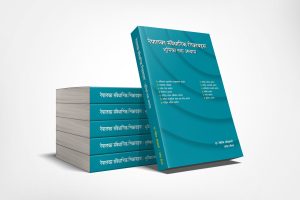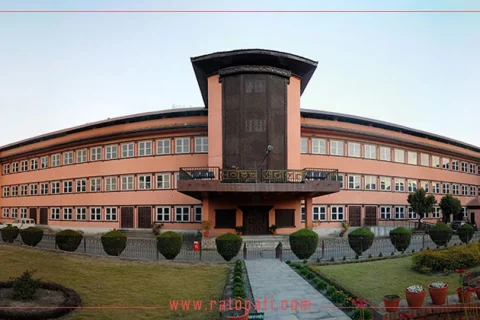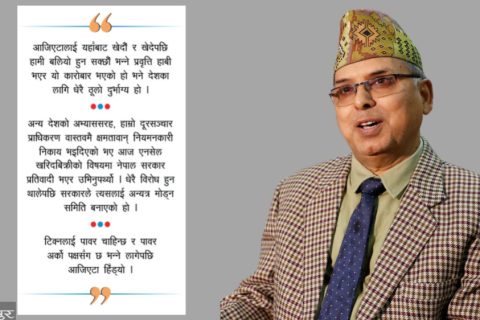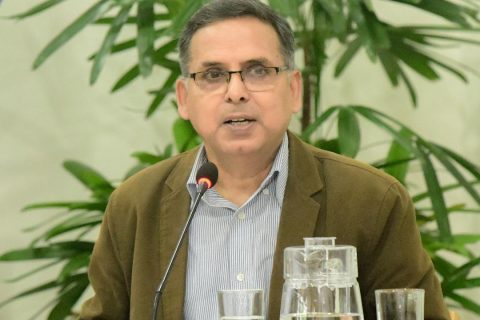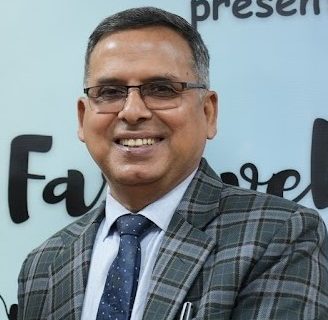Opposition, experts on parliamentary practices say Mahara did not give due respect to hallowed halls of Parliament
A decade ago when Pushpa Kamal Dahal, then prime minister and chairman of the Maoist party, triggered a political crisis by asking then army chief to step down, the Communist Party of Nepal (United Marxist Leninist) was his coalition partner. Then president Ram Baran Yadav blocked the move. Dahal’s prime ministership became untenable, as the CPN-UML walked out of the government. Dahal resigned; the Maoist party took to the streets demanding what it called “civilian supremacy”.
Fast forward to 2019. Amid calls from the main opposition and Dr Govinda KC, who is on his 16th hunger strike, to not endorse the National Medical Education Bill with the amended provisions, Prime Minister KP Oli—while addressing the House on January 18—ratcheted up the “parliamentary supremacy” rhetoric.
What has changed in the last 10 years is: Dahal’s Maoist party and Oli’s UML are now one as Nepal Communist Party and are on the same page on political hyperbole. Oli is the prime minister, Dahal is his co-pilot in the party, and Krishna Bahadur Mahara, Dahal’s man since war days, is the House Speaker.
Riding on the two-thirds majority in Parliament, the ruling NCP on Friday bulldozed the medical bill through the House amid Nepali Congress’ opposition.
When Mahara was fielded for the post of Speaker, the NC did not oppose. However, Mahara on Friday showed utter disregard to the NC, the main opposition, and facilitated the ruling party in the passage of the controversial bill, inviting sharp criticism from experts on parliamentary practices.
Bipin Adhikary, a constitutional expert, said Mahara’s performance as the House Speaker has not been up to the mark and that he has failed to keep the House in order.
“He seems to be following the government advice and failing to acknowledge the opposition and the Business Advisory Committee,” said Adhikari. The Business Advisory Committee is a group of lawmakers from various parties which discusses the House agenda for the day.
“The Speaker was well aware of the deal signed by the government with Dr KC. He could have sought commitment from the government to maintain neutrality. But he clearly sided with the government,” Adhikari said.
“He failed to give due regards to the lawmakers sitting on the other side of the aisle.”
Mahara comes from a party that had quite an aversion towards parliamentary system of governance. But today, Mahara has been entrusted with the job that calls for respecting the hallowed halls of Parliament, of which his Maoist party was never tired of heaping scorn upon. It’s not only the opposition that has taken exception to Mahara’s performance. Even lawmakers from his own party say they are not satisfied with the way Mahara has been handling the House.
“Mahara has not been as strong as his student Onsari Gharti, his predecessor, on handling the issues of Parliament,” a standing committee member of the NCP told the Post requesting anonymity for he feared retribution.
Jhalak Subedi, a political observer, said Mahara seems to be more knowledgeable about technical issues. “He has failed to comprehend the spirit of a parliamentary democratic system,” he said, referring to Mahara’s failure to take the opposition party into confidence through logical arguments.
Mahara’s Maoist party may have denounced parliamentary democracy but before it took up the arms, he was a parliamentarian. Mahara on Friday filled the House well with marshalls, just to ensure that Education Minister Giriraj Mani Pokhrel made it to the rostrum to present the bill for endorsement.
His handling of the House was so poor that he made a wrong announcement—that Clauses 2 to 53 have been endorsed because the majority of lawmakers “voted against”—throwing the ruling party lawmakers into confusion. But he did not correct his mistake.
The only lawmaker who voted against the proposal was Prem Suwal of Nepal Majdoor Kisan Party, and he was surprised that his “nay” vote was being endorsed.
“If someone challenges the mistake of the Speaker which is on record, the bill could lose its significance,” said former speaker Daman Nath Dhungana. “The Parliament Secretariat does not hold the right to make amends on the record.”
Nepali Congress lawmakers, who found themselves cornered by the government backed by a two-thirds majority, are now questioning Mahara for failing to maintain neutrality. NC’s Gagan Thapa even accused Mahara of deceit—for pledging a solution but letting the House endorse the bill forcibly.
“He (Mahara) had sent across a message that he would not move ahead with parliamentary business amid the opposition’s obstruction and that he would avoid confrontations,” said NC lawmaker Gagan Thapa, recalling a meeting of the ruling and opposition parties during which Mahara had said so. “He followed the government order.”
“I felt that the Speaker has become more irresponsible compared to the government. If he had wished he could avoid the confrontation by removing the bill from the work list. As per Rule 11 of the Federal Parliament Regulation, government’s bill is not discussed on Fridays. He can use the rule to avoid the bill. But he just took the orders from the government, forgetting his responsibility,” Thapa said. Former prime minister and Coordinator of Naya Shakti Party-Nepal Baburam Bhattarai, a former Maoist leader, also said Mahara failed to keep his word. “He had told me he would make a move with the bill only after the prime minister returned from Davos. I then left the House. But I came to know later that the bill had been endorsed,” said Bhattarai. “It would have been better if the government had held discussions with Dr KC before pushing the bill.”
Published: 27-01-2019 07:27




